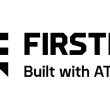Patience is an interoperability virtue
Regional coordination regarding public-safety communications often faces cultural barriers. There are some places, however, where the walls already have tumbled. One of those places is Harris County, Texas, which envelops the city of Houston, the nation’s fourth-largest metropolis.
Steve Jennings is the former Harris County chief technical officer who now is executive director of critical industries for Alcatel-Lucent. When Harris County hatched the idea for a regional first-responder communications network, Jennings went door to door — literally — for five years to sell the idea. The initial reaction was lukewarm.
But then the G8 economic summit landed in Houston, and the county deployed a six-channel system to handle the additional radio traffic. Not only did it demonstrate that interoperability could work, but it also dispelled some of the myths that existed concerning 800 MHz technologies, according to Jennings.
“Word got around, and created a domino effect,” on both counts, he said.
It took 18 months for the first agencies to join the system, but now the regional network is used by 260 federal, state and local agencies and more than 600 departments. It covers Harris County and 10 surrounding counties, as well as counties in other parts of the state, including the Dallas-Fort Worth metroplex. According to Jennings, roughly 213 interagency agreements that govern system use are in place. Perhaps the most telling indicator of the scope and success of this regional initiative is the moniker by which it is known today: where it once was known as the Harris County Regional Radio System, it now is known as the Texas Wide-Area Radio Network.
There are two key attributes needed to pull something this big off from scratch, Jennings said: passion and patience. “The hardest thing to do is keep focus, to remember that there is an end goal,” he said. “You’re going to get frustrated. So you have to have passion in the belief that this is the right thing to do.”
Patience is a good thing to be able to leverage when frustration ultimately sets in. Jennings reminded that TxWARN is two decades old — and still is a work in progress. He advised that giving birth to a regional network is a lot like eating an elephant — it has to be done one spoonful at a time. “And you don’t know how big the elephant is going to become, so it’s best to eat slowly,” he said.

















